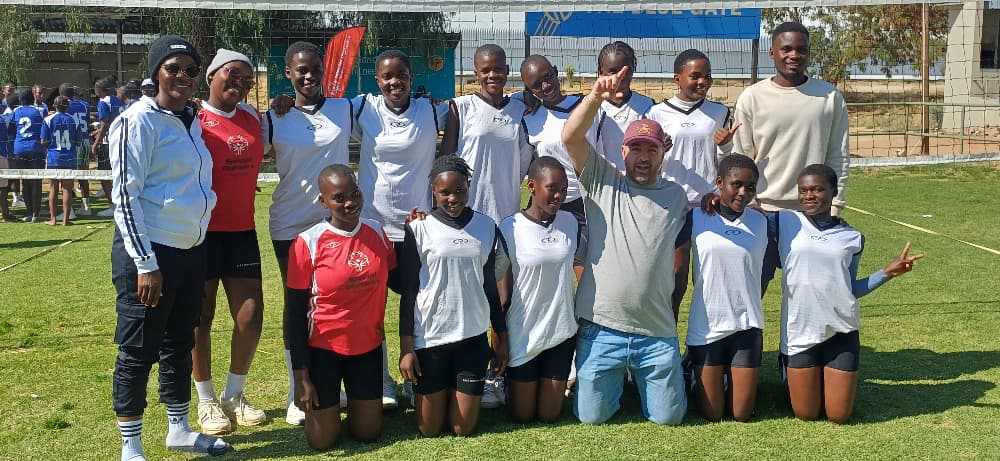Special Olympics Namibia’s Head Coach, Kristofina Bartromeus, is using her extensive background of playing and working at high levels of volleyball, combined with her education on coaching people with intellectual and developmental disabilities, to prepare herself to coach her team in Poland next week for the Special Olympics Unified Volleyball World Cup.
1. What is your background with volleyball?
I have played volleyball in the National Premier League and served as a U19 National Volleyball Team manager in 5 Regional Games.
2. What level of coach training have you received?
My prior education includes completing the Special Olympics Unified Sports coaching course, Special Olympics Level 1 Sport Assistant Course, Special Olympics Coaching Sport Assistant Course, and the Special Olympics Level 3 Sport Assistant Course.
3. How do you continue to improve your coaching ability?
I continue to improve my coaching ability by constantly learning and reflecting. I will continue to attend coaching workshops, study new training methods, and stay updated on the latest techniques and strategies in volleyball. I seek feedback from both athletes and fellow coaches. I always do reflections after every game.
4. How important is it for you to continue to learn as a coach?
It is very important for me to continue learning as a coach because coaching is always evolving with new techniques, strategies and approaches. Continuing learning will allow me to better support athletes, keep training methods effective and safe and adapt to each individual’s needs.

5. Why did you decide you wanted to be a coach?
I decided to be a coach because I have a passion for sport and a desire to help others grow, both on and off the court. Coaching gives me the opportunity to share my knowledge, inspire athletes, and guide them to reach their full potential. I enjoy seeing athletes improve, build confidence, and work together as a team.
6. What have you learned about yourself as a coach, working in Special Olympics?
Working in Special Olympics has taught me patience, adaptability, and importance of celebrating every achievement, no matter how small. I have learned that coaching is not just about skills and performance, but about encouragement, building confidence, and creating an inclusive environment. It has also shown me that I can grow personally by being more empathetic, creative in my approach, and deeply committed to each athlete’s individual progress.
7. Can you give an example of how you were able to help an athlete improve their performance beyond any medals they may have won in Special Olympics?
I help my athletes by setting small, yet realistic goals like managing their pace and/or working on their strength. Additionally, I work on building their confidence by encouraging them to work harder, focusing on drills that demand teamwork, giving positive reinforcement, and giving them small leadership roles during practice.
